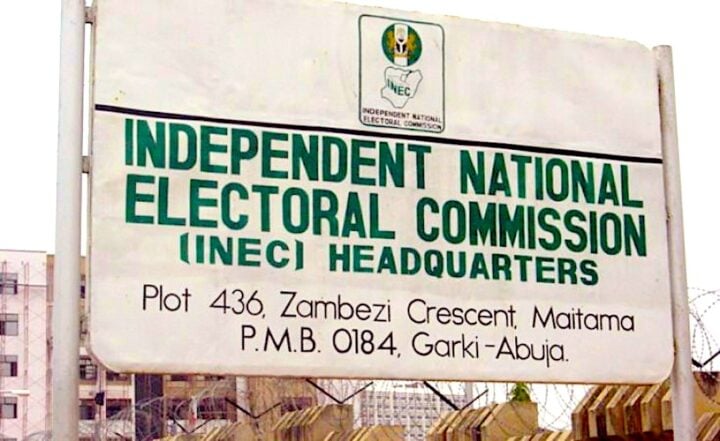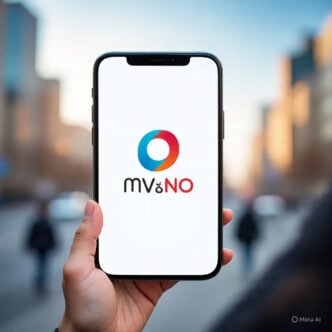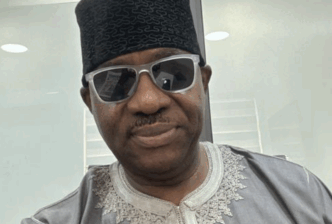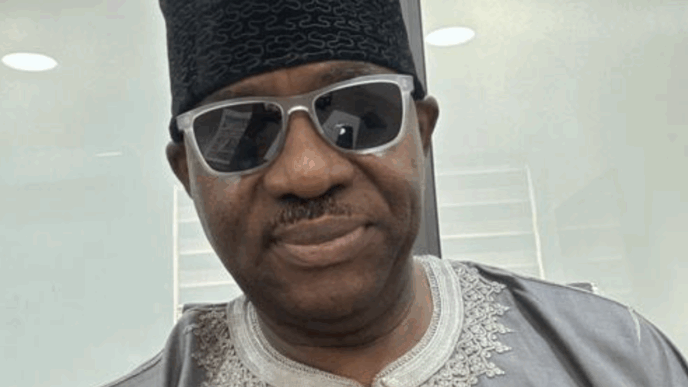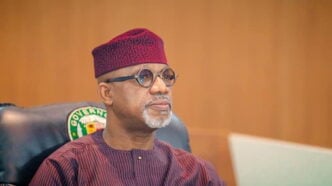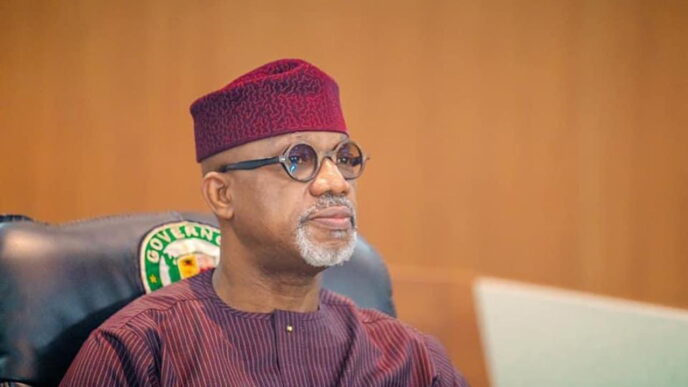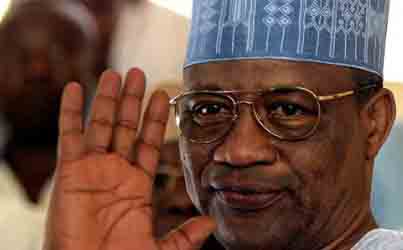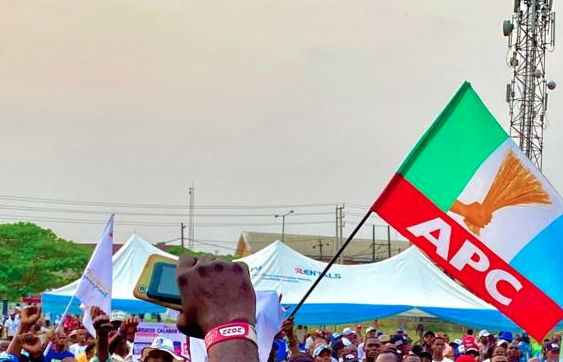BY NNAA KALU NTO
In the words of a wise African proverb, “You do not appoint a thief to guard the barn and expect the yams to remain.” Yet for decades, Nigeria has repeated this very mistake, allowing politicians to pick the electoral umpire who will referee the very contests in which they are contestants. Small wonder our elections often end in chaos, courtroom drama, and deepening distrust.
At the centre of this crisis is the Independent National Electoral Commission (INEC); an institution that should be the impartial conductor of our democracy but has, too often, played tunes dictated by the political elite.
A Long Road of Disappointment
Advertisement
Nigeria’s history with INEC appointments has been rocky. From Justice Ephraim Akpata in 1999 to Prof. Mahmood Yakubu, whose conduct of the 2023 elections drew public outrage, the appointment process has remained the same: a sitting President chooses the Chairman, the Senate endorses, and the people hope for miracles. This is like asking a hunter to referee a game between antelopes and lions.
In African lore, when the talking drum beats too loudly, it is not music but a warning, a sign that the rhythm has been hijacked by the drummer’s ego. So too, Nigeria’s electoral history since 1999 has often been a performance where the melody of democracy is drowned out by the thunder of political manipulation.
Obasanjo’s PDP Era (1999–2007) — The Golden Promise and the Shadow of Rigging
Advertisement
Under President Olusegun Obasanjo, Nigeria re-entered democratic rule in 1999 with the electoral baton in the hands of Justice Ephraim Akpata (1998–2000) and later Abel Guobadia (2000–2005). Akpata’s short tenure was seen as a breath of fresh air, conducting what many considered a relatively credible 1999 election despite logistical hiccups. But as the years rolled on, Guobadia’s INEC became a lightning rod for criticism. The 2003 general elections, marred by ballot stuffing, voter intimidation, and outright falsification of results, were condemned by international observers as “deeply flawed.”
By the time Prof. Maurice Iwu took over in 2005, the shadows lengthened. If Obasanjo’s elections were stained, Umaru Musa Yar’Adua’s ascent in 2007, overseen by Prof. Maurice Iwu, was a full-blown electoral storm. International observers called it “the worst in Nigeria’s history.” Ballot boxes vanished into thin air, results were declared before collation, and opposition rallies were violently disrupted. Yar’Adua himself, in an unprecedented act of candour, admitted the process was deeply flawed and initiated electoral reform. That confession was a rare moment of truth from the throne, proof that even the king could not deny the stench from the palace kitchen.
Yar’Adua–Jonathan Transition (2007–2015) — From Flawed Mandate to Electoral Awakening
Maurice Iwu’s exit in 2010 marked the arrival of Prof. Attahiru Jega, whose tenure is often hailed as the most reform-minded in Nigeria’s recent history. Jega introduced the Permanent Voter Card (PVC) and the Smart Card Reader, injecting a measure of transparency into the process. The 2011 election, while not flawless, was widely praised as a significant improvement, even though post-election violence claimed over 800 lives in the North.
Advertisement
In 2015, Jega presided over a historic transition that saw an incumbent, Goodluck Jonathan, concede defeat to Muhammadu Buhari. It was a moment that felt like democracy’s finest hour in Nigeria, proving that sometimes, the forest can heal if the fire is not allowed to spread too far.
Buhari’s APC Era (2015–2023) — The Age of Disillusionment
Under Buhari, the electoral umpire’s chair passed to Prof. Mahmood Yakubu in 2015, and for a while, the nation’s hopes were high. But as the 2019 elections approached, the tone shifted. Reports of voter suppression, militarization of polling stations, and selective cancellations in opposition strongholds drew sharp criticism. Civil society groups accused Yakubu’s INEC of bending under political pressure.
Then came 2023, an election billed as Nigeria’s most technologically advanced with the BVAS (Bimodal Voter Accreditation System) and IReV (INEC Results Viewing Portal). Yet, on election day, BVAS malfunctions, delayed uploads, and opaque collation processes eroded public confidence. Opposition parties called it a “digital coup,” while ruling party loyalists called it “a victory of resilience.” But in the market square of public opinion, the murmurs were clear: the referee was seen blowing the whistle for one side more than the other.
Advertisement
Tinubu’s Early Days (2023–) — The Suspicion Lingers
Bola Ahmed Tinubu assumed office under the cloud of those 2023 controversies, with Mahmood Yakubu still at the helm. Court challenges, bitter rhetoric, and accusations of compromised technology have left Nigeria’s electoral credibility bruised. Our people say: “When a child trips twice on the same stump, it is not the stump that is foolish.” The question remains, will Nigeria keep tripping, or will it finally clear the path?
Advertisement
Each time, the story is the same: the umpire starts neutral, then begins to dance to the drumbeat of the appointing fingers.
The Flawed Electoral Act and the Burden on the Voter
Advertisement
The Electoral Act 2022, while progressive in some areas, left a fatal flaw untouched: executive capture of INEC’s leadership. By continuing to let a President, who often has a vested interest, appoint the INEC Chair, we bake partisanship into the institution. Meanwhile, the voter registration process remains a punishment. Citizens queue for hours, battle poor internet, limited machines, and unmotivated staff. First-time voters in rural areas often walk for miles to reach registration centres, only to be turned back. In a country of 220 million, that’s not democracy; it’s disenfranchisement!
As another proverb warns, “A child who is not initiated into the village will burn it down just to feel its warmth.” Millions of Nigerian youths, repeatedly excluded by the system, are beginning to lose faith entirely.
Advertisement
A Transparent Selection Process: What Should Be Done
It is time to end the culture of political coronation disguised as constitutional process. To truly appoint a neutral, non-partisan INEC Chairman, we must change both the process and the players involved. It would be both timely and beneficial for the ongoing constitutional review to thoughtfully incorporate this consideration into its deliberations, ensuring that the revised framework reflects the broader public interest and strengthens our democratic foundations.
1. A New Electoral Selection Panel
We must constitute a non-political selection panel, insulated from executive influence. This panel should include: A retired Supreme Court Justice (as chair) and One nominee each from: Nigerian Bar Association (NBA), Religious councils (Christian Association of Nigeria and NSCIA), Civil society organizations (e.g., YIAGA Africa, SERAP), Labour unions (e.g., NLC/TUC), Opposition political parties in the National Assembly
This committee should publicly call for applications, screen candidates on live TV, and recommend a shortlist of 3 highly qualified, non-partisan Nigerians.
2. Strict Qualification Criteria
Any candidate must: Not have held party membership in the past 10 years. Not have served in any political appointment in the last decade. Be professionally distinguished, with a track record of integrity. All CVs, party history, assets, and past affiliations must be made public.
3. Senate Confirmation with a Supermajority
The Senate should be required to confirm the INEC chairman by a two-thirds majority, not a simple majority. This ensures cross-party consensus, rather than executive imposition.
Further Reforms for Credible Elections
Non-renewable 7-Year Tenure: Prevents INEC chairmen from lobbying for reappointment.
Automatic Funding: INEC’s budget should come directly from the Consolidated Revenue Fund, protected from executive interference.
Decentralized, Tech-Enabled Voter Registration: Allow voters to register online using NIN and facial verification. Deploy mobile registration kits to every ward, not just local government HQs. Allow diaspora voting and digital participation, as other African countries like Ghana and Kenya are piloting.
Electoral Performance Review Committee: After each major election, an independent Citizens’ Electoral Review Council, made up of journalists, tech experts, CSOs, and retired judges, should issue a scorecard of INEC’s performance.
The Pattern That Persists
From Akpata’s cautious beginnings to Iwu’s brazen missteps, from Jega’s reforms choked by violence to Yakubu’s technological misfire, one truth stands out: Nigeria’s electoral umpires often start neutral but end up dancing to the drumbeat of those who appointed them. It is a reminder that a fine calabash, no matter how well carved, will not hold water if the cracks are left unfixed.
The Way Forward
If we want credible elections in 2027 and beyond, we must act now. Our democracy can no longer afford a system where one man appoints the referee, plays the striker, and owns the stadium. As the elders say, “when the drummer is also the dancer, the rhythm is always biased.”
Nigeria deserves an election umpire that belongs to the people, not the presidency. The reform of the appointment process is not just a legal necessity, it is a moral obligation. A transparent, participatory, and accountable system for selecting the INEC Chair is the foundation stone for every other reform. Fellow Compatriots, it is now incumbent upon us to fix the root, or continue reaping the rot.
Nnaa Kalu Nto, a good governance advocate and CEO of Analytix, can be contacted via [email protected]
Views expressed by contributors are strictly personal and not of TheCable.
